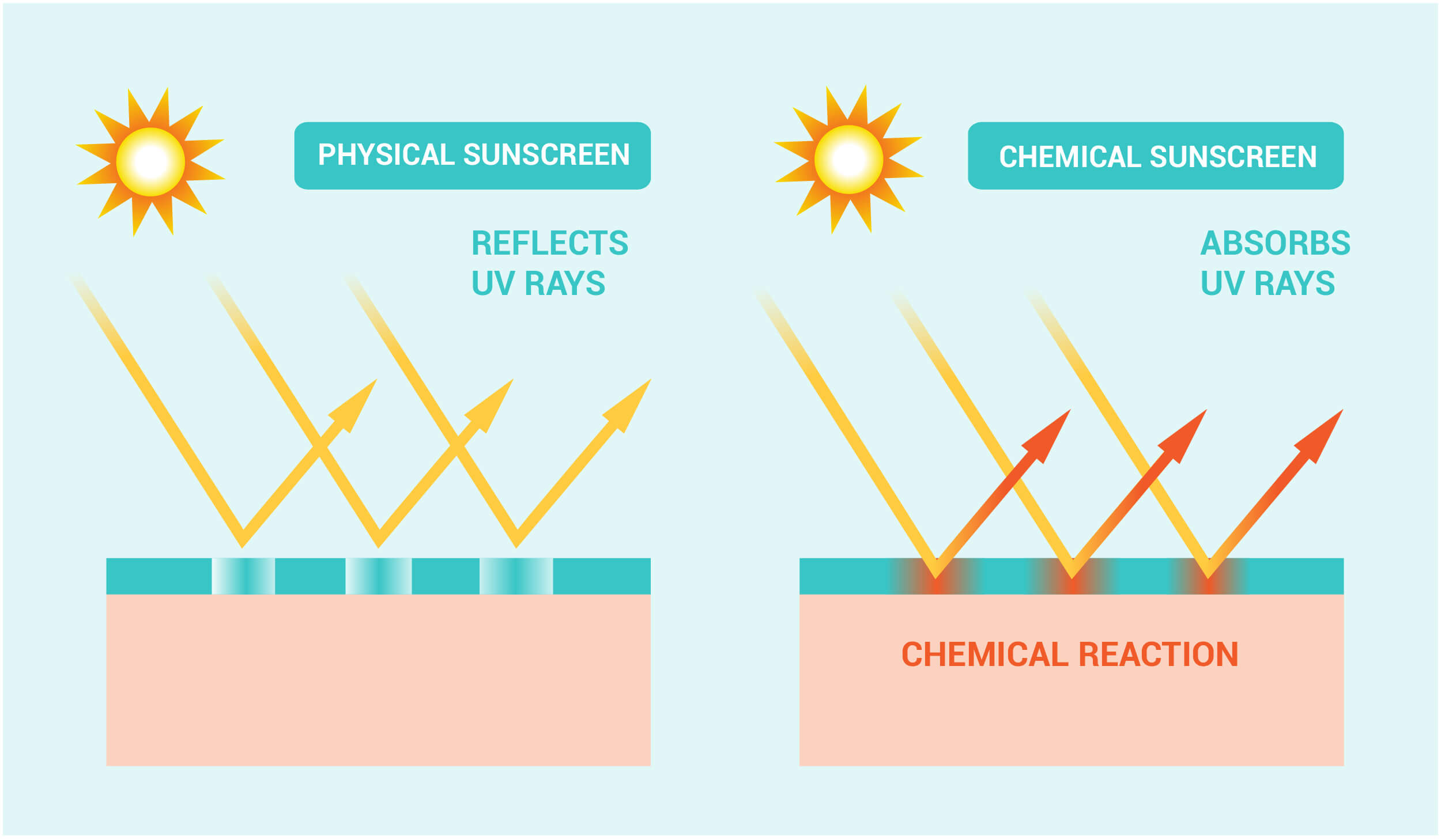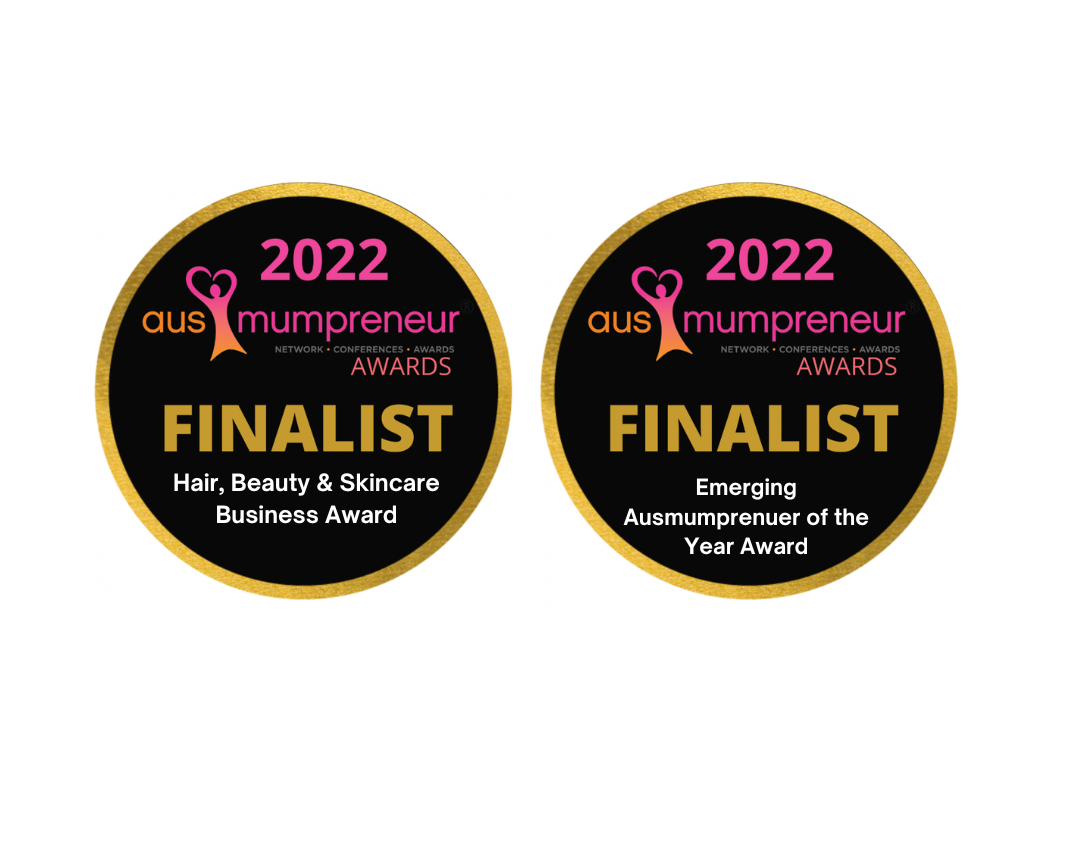Mineral vs Chemical Sunscreen

When it comes to using sunscreen it ultimately comes down to which formulation is best for your skin type and what you enjoy wearing. The fact is any sunscreen is better than no sunscreen to help protect your skin from UVA and UVB damage. There are many variants of sunscreen on the market today which can be overwhelming, however they can all be divided into two main categories - (1) mineral sunscreens (or physical sunscreens) and (2) chemical sunscreens.
What is the difference?
Mineral sunscreens are those that use minerals as their active ingredient, most commonly being zinc oxide and titanium dioxide. Mineral sunscreens are often called physical sunscreens because they provide a physical barrier between your skin and the sun’s rays. Simply put, mineral sunscreens sit on top of your skin and reflect the harmful UV rays away from your body.
Chemical Sunscreens are those that use non-natural, chemical compounds as their active ingredient and are effective because they absorb the sun’s UV rays. Chemical ingredients commonly found in sunscreen are oxybenzone, avobenzone and homosalate. Once absorbed into the skin, the sunscreen reacts and dissipates the UV rays by transforming them into heat. Simply put, chemical sunscreens absorb and convert the UV rays into heat and releasing them from the body.
What are the pros and cons of a mineral sunscreen?
Pros:
- Suitable for all skin types and in particular sensitive skin and considered free from harmful chemicals
- Protects the skin as soon as it is applied as it sits on the surface of the skin (no need to wait before exposing skin to sunlight)
- Uses safe and effective natural ingredients
- Naturally broad-spectrum (meaning to offers protection against both UVA and UVB rays)
- Lasts longer in direct UV light
Cons:
- Depending on the formulation mineral sunscreen can often leave a visible residue on the skin
- It is easier to rub off or sweat off and won’t last as long in water, as a general rule
- Depending on the formulation it may be harder to blend fully onto the skin
What are the pros and cons of a chemical sunscreen?
Pros:
- Protects against UVA and UVB rays
- High water and sweat resistance
- Generally quite thin and light weight and looks unnoticeable on the skin
- Easy to spread over the skin
- Commonly available in most regions
Cons:
- Chemicals used in chemical sunscreen can often irritate the skin resulting in sensitivities and a stinging sensation
- The chemical reaction occurring in the body can also exacerbate inflammatory skin conditions such as acne and eczema
- Takes time to activate - usually around 20 minutes
- Some of the commonly used ingredients have been linked with a number of hormone related problems as trace amounts of the chemicals can trickle into the bloodstream
- Some of the commonly used ingredients have been linked with damaging the local ecosystems and harming aquatic life.
The best sunscreen is the one that you look forward to applying daily. As long as it provides broad-spectrum protection to prevent damage from the sun’s killer UVA and UVB rays you are on the right track. Beyond that, know how your skin type responds to different sunscreen ingredients and textures: those containing mineral actives, synthetic actives, or a combination of both and make an informed decision from there. Whichever sunscreen you choose, it’s important to use it every day, rain, hail or shine.

